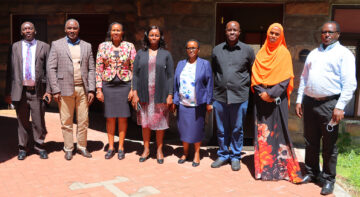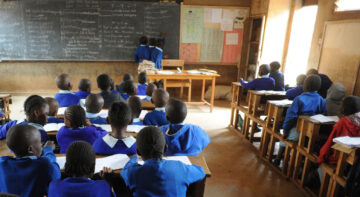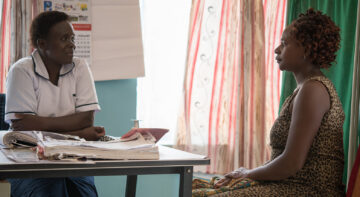Blogs

Pregnancies among school girls are a leading cause of school dropout (accounting for about 25% of drop-outs in sub-Saharan Africa) yet evidence shows that each extra year a girl stays in school increases their future earnings by 10-20%. Experts convened at a policy dialogue by The African Institute for Policy Development (AFIDEP) and United Nations Population Fund (UNFPA) has emphasized the need to have evidence-guided policy action to deal with the problem conclusively.
In Kenya, almost 2 out of every 10 girls between the ages of 15 and 19 are reported to be pregnant or have had a child already. This trend has been fairly consistent for more than two decades, with Demographic and Health Surveys showing little change in prevalence between 1993 and 2014.
“Teen pregnancies have adverse impacts on the wellbeing of girls and would undermine the ability of the nation to harness the demographic dividend and achieve its Vision 2030 development aspirations,” said Dr Eliya Zulu, Executive Director, AFIDEP
Teenage pregnancies have wide-ranging costs. In healthy adolescents aged between 15 and 19 account for an estimated 14% of all births in Kenya. 63% of these pregnancies within this age demographic are unintended while 35% of the pregnancies end up in abortions. From the economic perspective, it is estimated that the lifetime cost of teenage pregnancy in Kenya could be as high as 17% of annual GDP.
“Teenage pregnancy not only robs girls of their childhood but also presents a formidable challenge to their capacity to optimize their potential in future. The nation is consequently deprived of the critical contribution of these girls to national socio-economic development. A comprehensive approach must be undertaken to ensure that young girls do not leave their future behind on the alter of teenage pregnancy,” says Dr Ademola Olajide, Representative, UNFPA.
Various factors contribute to unintended teenage pregnancies including challenges to meeting the sexual and reproductive health needs of young people, such as, social and ideological cultural barriers, early marriages especially in rural areas, access to contraception, low literacy levels and poor implementation of strategies on teen pregnancy and youth sexual and reproductive health in Kenya.
In conclusion, the AFIDEP-UNFPA convened policy dialogue noted that policies to address the problem exist and called for a multisectoral approach to address challenges to implementation and devoting enough resources for sustainable implementation. Various stakeholders attended the policy dialogue from government, academia, think tanks, civil society, faith-based organisations and the media, to deliberate on the challenge of teen pregnancies and come up with policy recommendations to address the matter decisively.
Please take 3 minutes to give us feedback on the policy dialogue here.
Related Posts





